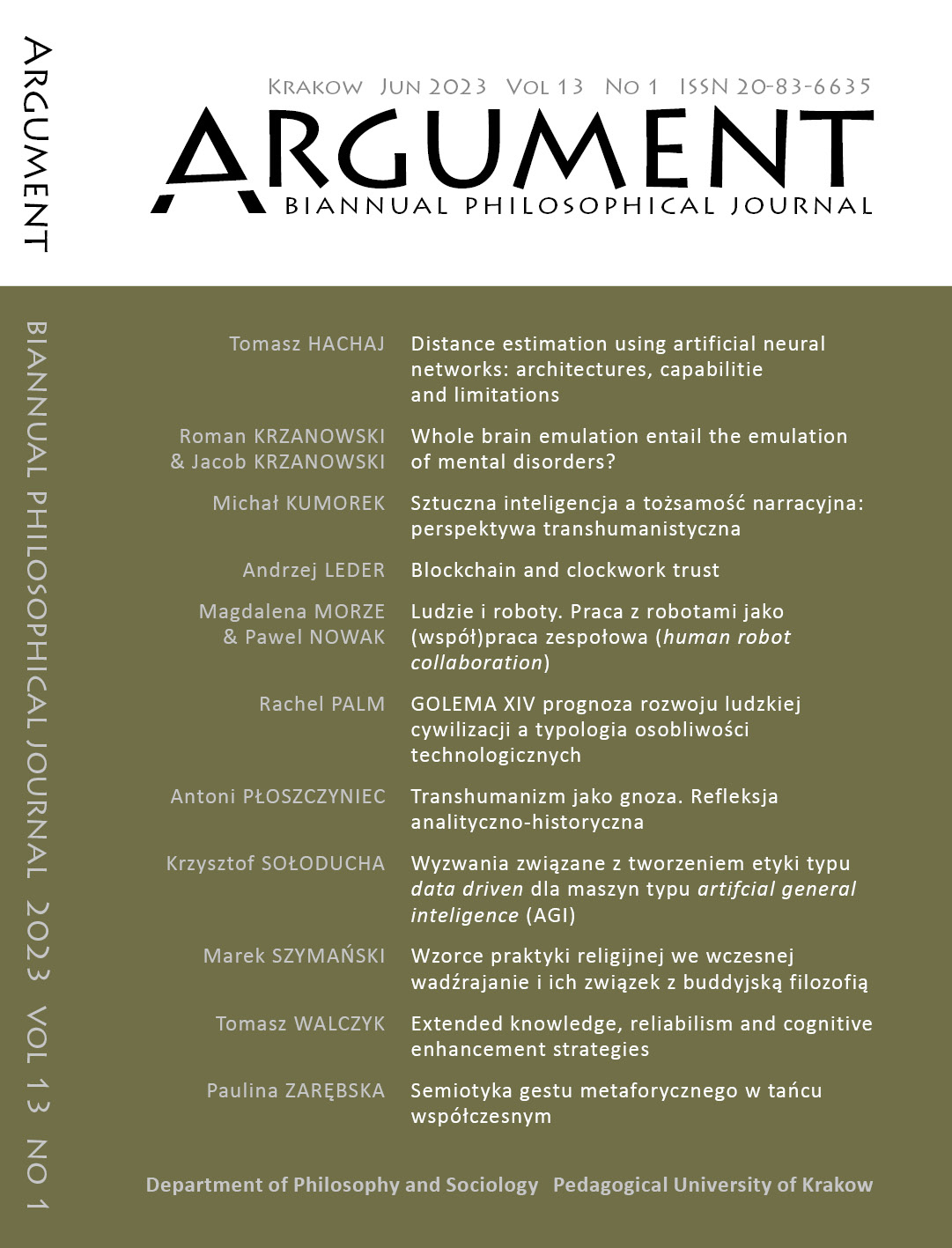Transhumanizm jako gnoza Refleksja analityczno-historyczna
Transhumanism as gnosis. Analitical and historical reflection
Author(s): Antoni PłoszczyniecSubject(s): Philosophy of Mind, Philosophy of Religion, Sociology of Religion, Psychology of Religion
Published by: Wydawnictwo Uniwersytetu Komisji Edukacji Narodowej w Krakowie
Keywords: transhumanism; gnosis; gnosticism; moral enhancement; deification; salvation; transcendence; self‐overcoming;
Summary/Abstract: The aim of the article is to present transhumanism as a contemporary form of a scientistic gnosis. In order to implement the purpose above, the focus was on the texts of representative transhumanist authors (inclu‐ ding: Nick Bostrom, John Harris, Julian Huxley, Raymond Kurzweil) and the reconstruction, analytical‐historical and comparative methods were used. At the beginning of the considera‐ tions, the difference between gnosis and gnosticism was pointed out. The first is a certain way of thinking whose essence consists in striving to save oneself through knowledge. The second is a historical actualisation of the first and concerns ancient and syncretic religious concepts created in the 2nd century AD. Then, the main types of Gnostic thought were presented and the main motifs of ancient gnosis (such as anti‐cosmic pessimism, aversion to corporeality, a sense of alienation, longing for „true life”, rebellion against fortuitousness and fate [heimar- mene]) were distinguished. This is used to demonstrate in the futher parts of the text that transhumanism is a concept that reproduces the patterns characteristic of Gnostic thinking. Transhumanists see scientific knowledge as a tool for divinizing man and solving eschatological problems (like death, suffering and moral evil). This knowledge performs functions analogous to ancient gnosis — it is non‐rational knowledge that saves, enlightens, transforms and has a practical character. Like their ancient predecessors, transhumanists aim at liberation from corporeality and share a decidedly negative assessment of the current human condition. Their intention is also to overcome (genetic) fortuitousness and gain complete control over them‐ selves. Recognizing the gnostic character of transhumanism can play an important role in its critique.
Journal: ARGUMENT: Biannual Philosophical Journal
- Issue Year: XIII/2023
- Issue No: 1
- Page Range: 43-58
- Page Count: 16
- Language: Polish

